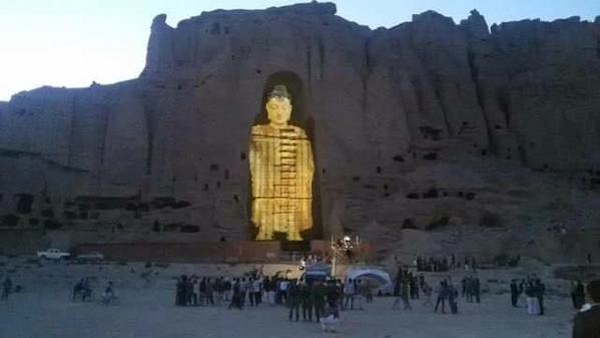WHEN the Talibans destroyed the famed Buddha statues of Bamiyan in Afghanistan in 2001, it drew worldwide condemnation, not least from the Buddhists and understandably so.
Not only were these important symbols of Afghan Buddhism, the statutes built in the sixth century were listed under the UNESCO World Heritage Site.
But if one were to take a closer look at the re-actions from Buddhists, they were rather restrained. There were no hysterical calls to physically retaliate against the Taliban – or God forbid – attack the Muslims.
Part of this lies in the Buddhist philosophy of “impermanence”. This central teaching in Buddhism tells its followers that whatever arises must surely pass on, be it a human life or man-made structures.

Put another way, Buddhists believe that these Bamiyan statues were meant to be destroyed at some point – whether due to human activity, environmental degradation or in a cataclysmic end-of-time event – unlike the meteor strike that wiped out the dinosaurs 66 million years ago.
As far as Buddhists are concerned, it’s the teachings that should be preserved and upheld – not the mode or platforms the teachings come in – whether it is a holy book or the gigantic statues of Buddha around the world that serve as a reminder of the teachings that can be traced back to 2,600 years ago.
But prioritising the core values of spirituality over liturgy or form, is not the exclusive domain of Buddhism. Major religious movements from Christianity, Islam to Hinduism have compassion as one of its core values.
They teach its adherents to be kind, forgiving and above all, love their fellow humans regardless of race, creed or religious backgrounds.
The destruction or desecration of religious symbols does not give anyone the license to flung these core spiritual values out of the window such as resorting to violence. Likewise, no religion teaches its followers to run down or hurt the feelings of those from other faiths like insulting religious symbols.
This explains why there’s been a surge in interest on social media about religious symbolism found on attire of late. Besides the controversy surrounding a pair of socks bearing “Allah” found in a KK Super Mart outlet, social media users are now sharing photos of non-Islamic symbols found on attire sold online.
These include “Buddha pattern briefs” (main image) which feature Buddha prints on the apparel as well as “Cool Sacred Heart of Jesus Underwear” which has a picture of Jesus Christ prominently printed on the crotch area of the brief. All these are being sold openly on e-commerce sites like Alibaba and Amazon.

The reaction and comments from social media users to the photos are typically Malaysian and range from the sarcastic, intriguing to the downright insulting (to others as well as their own religion). They include “Do we need to censor Amazon now?” to “Isn’t this insulting to Christians?”.
But for the most part, these questions are moot or at best rhetorical. The answers to many of these questions can already be found at the core of whatever religions these people profess – if they are honest and earnest enough to look for them. – March 20, 2024









